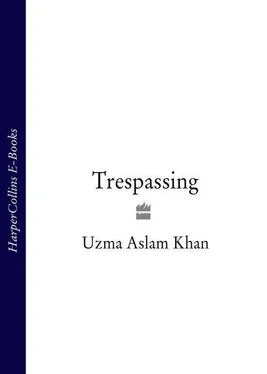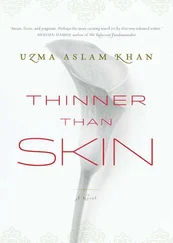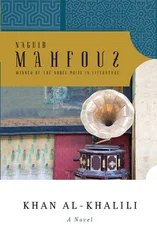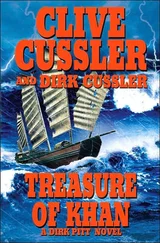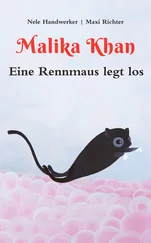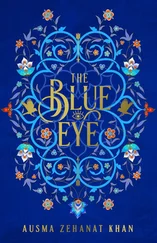When she paused at a tusk-like one Daanish told her a story about a diver who’d been paralyzed by the sting of a glory-of-the-seas cone, shaped just like the orange cone she was rubbing. Seventy feet beneath the surface of the sea, he’d hovered in total darkness, knowing he could never kick his way back up to life. When the body was found the oxygen tank was completely empty. Daanish tried to imagine the terror of hanging in a frigid dark sea without air. As if watching myself diminish, he thought. As if the dying could actually see their fate: it could shrink into a two-inch cone in their hands. He shuddered, wondering what his father had seen in his last hour.
The woman was nodding sagely. Her fingers wrapped around each piece, the grooves of her flesh searching new grooves to slide along.
He offered her names. ‘That one that looks cracked my father found in Japan. It’s a slit shell. Those two dainty pink ones are precious wentletraps. They used to be so rare the Chinese would make counterfeits from rice paste and sell them for a fortune. But now the counterfeits have become rare.’ Daanish had been given both the real and the false. He asked the woman to tell them apart.
She smiled but wouldn’t play along. Daanish’s names and histories mattered little to her. It was enough that the shells felt good and made beautiful music. After rubbing each one, she returned the necklace and abruptly asked, ‘What do you do in Amreeka?’
‘I study.’
‘Are you going to be a doctor or engineer?’
‘Um. I don’t know.’
Her shrewd eyes darted across his face. Then she turned away, back to her silent place. Occasionally, she looked around the plane and boldly examined the others as if chairing a secret inquisition.
It would have served no purpose telling her he wanted to be a journalist. She’d question the profitability of his choice. He’d been questioning this himself. Like Pakistan, the US was not the place to study fair and free reporting. In the former, he risked having his bones broken. In the latter, his spirit.
But journalism intrigued him for the opposite reason his other passion, shell-collecting, did. One kept him in tune with his surroundings while the other demanded dissonance. One was beautiful on the outside while the other insisted he probe into the poisonous interior, like a diver. He’d tried to explain this to a father who’d grown increasingly unhappy with the choice. In one of their last discussions, Daanish retorted that the profession was in his blood.
His soft-spoken, introverted grandfather had been the co-founder of one of the first Muslim newspapers in India. The paper had played a major role in advocating the cause of the Pakistan Movement, and been praised by the Quaid-i-Azam himself. Daanish was taught early that in British India, when it came to the written word, Muslims lagged far behind the Hindus and other communities. Prior to the 1930s, they didn’t own even one daily newspaper. His grandfather had helped establish the first. As its maxim, it quoted a member of the All-India Muslim League: To fight political battles without a newspaper is like going to war without weapons. The paper sharpened its weapons. The British responded by banning it, imprisoning Daanish’s grandfather, and leaving the rest to the Muslims themselves: the co-founder was shot dead by a fellow-Muslim in his office.
After Pakistan’s birth, his grandfather was released and the family moved to the new homeland. But ten years later, for reproaching the country’s first military coup, he was again imprisoned.
Decades later, in his last letter to him, Daanish’s father wrote, ‘Do you want to throw away the opportunity to educate yourself in the West by returning to the poverty of my roots? You will fight Americans, only to find you also have to fight your own people. This is not what your grandfather languished in jail for. He once warned me, “Only the blind replay history.” Think.’
Daanish hadn’t answered him. He hadn’t explained that when it came to a Muslim press, it wasn’t just the subcontinent that was impoverished. He had only to dig into the reporting on the Gulf War to know it was won with weapons that exploded not just on land but on paper. Yet few fought back.
Next to him, Khurram snored. His Nintendo showed a score of 312. The discman was turned off. Daanish considered borrowing it, maybe listening to Ice-T. Freedom of Speech … Just Watch What You Say. When he’d first heard those words he knew they must reach Professor Wayne. So he included them in a term paper. Wayne slashed out the citation in thick red lines and added no pop references. Daanish argued that the coverage on the war was at least as pop as a rap song. Later, foolishly, he wrote about it to his father. The doctor advised him to change to medicine or risk a life of regret.
They were entering Germany, journeying through a tunnel of shifting darkness, now black, now thin sepia. Frankfurt in twenty minutes. The ladies and gentlemen of the bean-pod were requested to kindly fasten their seatbelts and extinguish cigarettes.
‘We’re landing,’ Daanish’s companion awoke and beamed.
‘Sleep well?’ asked Daanish.
‘Oh yes, I always do.’
The bean-pod slanted downward. Daanish’s stomach lurched. The lights of Frankfurt danced outside his window. Mini-wheels grazed the runway. Lilliputian engines slowed, and then there was another announcement. Only those ladies and gentlemen holding American, Canadian, or European passports could disembark for the duration of the stopover. Those naughty others might escape, so they must stay on board.
For the first time during the flight, Khurram appeared crestfallen. He was not naughty, wouldn’t they believe him? No, explained Daanish. Khurram’s mother looked away. She needed no explaining.
And then the bean-pod did a funny thing. It swung to face the direction from which it had just come. It nosed upward. It increased altitude. It sped back across the Atlantic at such speed the hair of the naughty passengers blew this way and that. The sky turned from sepia to gold. The sun bobbed alongside again. On arrival, the passengers brushed their hair into place, collected bags, and stumbled out on to a sunny college campus. Daanish consulted his watch: 4.35. He was late for work.
OCTOBER 1989
‘You’re late,’ barked Kurt, manager of Fully Food. He had a football-shaped head on a boxer’s body gone soft, like Lee J. Cobb in Twelve Angry Men. To him his workers were Fully Fools.
‘Hey Kurt,’ Daanish muttered. ‘I got held up.’ He swiftly brushed by before Kurt could get started. ‘Held up? This is a high-volume job.’
Daanish hung up his jacket, bound the knee-length apron, adjusted his cap, and entered the dish room. The kitchen reeked of sweat, bleach, stale greens, ranch dressing thrown in vinaigrette, cheese dumped in orange juice. Wang from China and Nancy from Puerto Rico said hi when he took his place at the sink but no one else bothered.
He started hosing down a copper pot that reached halfway down his thighs. Particles of ravioli sprayed his eyes and lips. The fare tonight was pasta and meatballs, mince pie, mashed potatoes and gravy, pan pizza, and the usual salad bar. Daanish learned each day’s menu not to prep his palate but to prep his muscles and olfactory nerves. Starch and gravy were the meanest to clean. The crust of that pan pizza would be a bitch. He chuckled at how readily he’d picked up such phrases, though barely two months had passed since his arrival. Turning off the hose, he started scraping off the glutinous residue of Reddi-Mash from the pot’s interior with a knife. The smell made his stomach weep. He’d skip dinner again.
Читать дальше
Конец ознакомительного отрывка
Купить книгу
